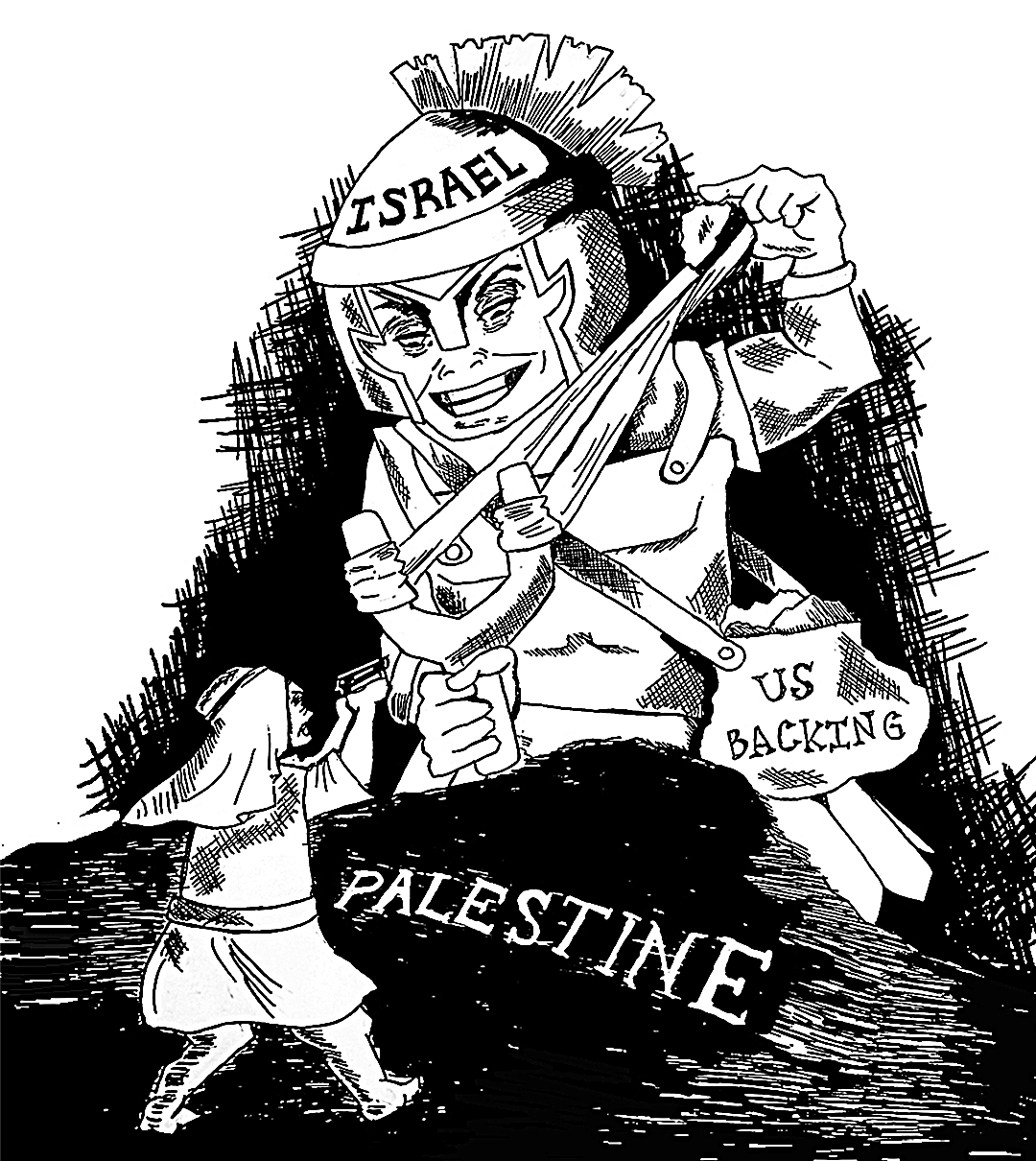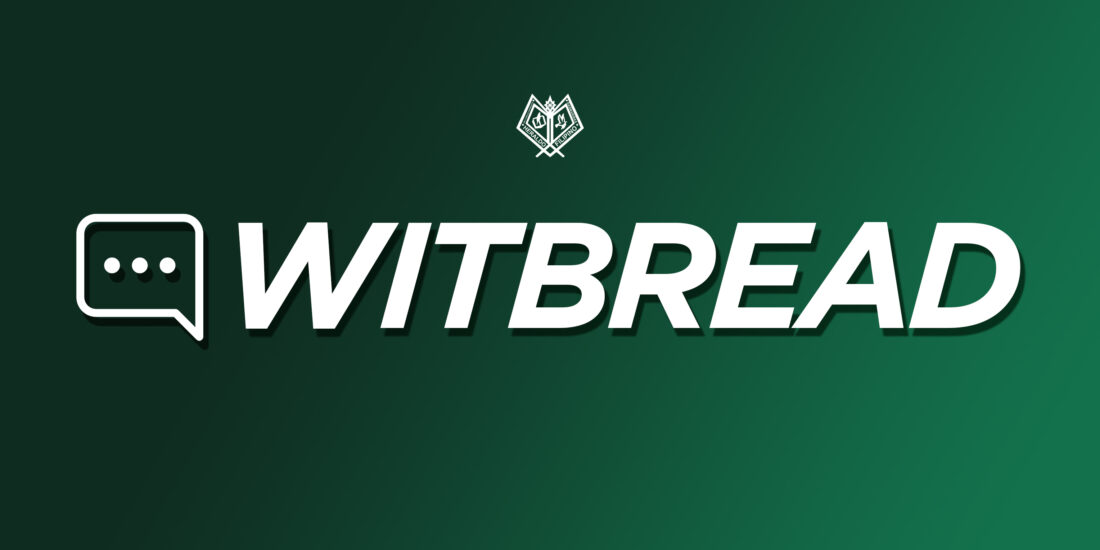No in-betweens
The root of the Israeli-Palestinian conflict can be traced back to the mid-twentieth century. In 1947, the United Nations (UN) passed Resolution 181, commonly known as the Partition Plan, with the aim to divide the British Mandate of Palestine into separate Arab and Jewish states. This division culminated in the establishment of the State of Israel in May 1948, triggering the first Arab-Israeli War. While the war ended in 1949, with Israel emerging victorious, it resulted in the displacement of 750,000 Palestinians, and the territory was subsequently partitioned into three parts: the State of Israel, the West Bank (along the Jordan River), and the Gaza Strip.
The unfolding of an amassed struggle
In early October 2023, hostilities erupted between Israel and Hamas, the militant group of Gaza since 2006, marking a significant escalation in the Israeli-Palestinian conflict. Hamas launched rockets into Israel and conducted operations in southern Israeli cities, resulting in over 1,300 Israeli casualties, 3,300 injuries, and the capture of hundreds of hostages. The surprise attack prompted Israel to swiftly respond with a deadly counteroffensive. The day after the October 7 assault, the Israeli cabinet formally declared war on Hamas, and the defense minister issued a directive to the Israel Defense Forces (IDF) to impose a “complete siege” on Gaza.
Since then, both sides have engaged in daily rocket exchanges, and Israel instructed over a million Palestinian civilians in northern Gaza to evacuate before a ground invasion on October 28. Gaza has been encircled by Israeli forces, isolating it from the southern part and “putting pressure” on Hamas. Despite the ongoing conflict, hundreds of thousands of civilians remain in the city. According to Gazan health officials, the war has claimed the lives of 10,000 Palestinians, including over 4,000 children. The region is facing severe shortages of water, fuel, and supplies, exacerbated by Israel’s rejection of humanitarian pauses and restrictions on aid entry.
The Israeli-Palestinian conflict has witnessed tens of thousands of casualties and the displacement of millions. The declaration of war on the Gaza Strip by Israel, following an unprecedented attack by Hamas, has drawn global attention to the unfolding situation. The retaliatory actions by both sides, including bombings and blockades, have intensified the crisis, with Israel’s “total blockade” of Gaza, raising concerns about potential violations of international law.
The Palestinian resistance, shaped by decades of struggle, is portrayed as a justified response to historical dispossession and violence stemming from the Zionist occupation of Israel. The recent Hamas attack, triggered by the Gaza blockade, settler violence, and the normalization of ties between Saudi Arabia and Israel, led to Israel’s declaration of war, turning Gaza into the epicenter of the conflict. Over a week, Israel’s extensive bombing campaign in residential areas and hospitals resulted in 2,800 casualties, including women and children, marking the latest escalation in the 75-year Zionist aggression.
Zionism, viewed as a settler-colonial project seeking to establish a Jewish nation-state in Palestine, gained momentum after World War I, during the British Mandate in 1922. The Balfour Declaration played a pivotal role, promising a “national home for the Jewish people” in Palestine and aiding the Zionist movement in realizing its objectives.
What it really is
Genocide is the most serious offense in international law, encompassing actions like killing or deliberately imposing conditions intended to lead to the destruction of a targeted group, either wholly or partially, based on ethnic or national grounds. Certain leaders within the Israeli government have expressed genocidal intentions and dehumanized Palestinians, referring to them as “human animals.” The Israeli military has engaged in bombing civilian areas and infrastructure, including the use of chemical weapons, while depriving Palestinians of essential necessities like water, food, electricity, fuel, and medicine. When coupled with mass killings and a total siege resulting in conditions conducive to the physical destruction of the group, these statements suggest evidence of an ongoing crime of genocide.
Since October 7, the Israeli government has reportedly killed over 11,100 Palestinians in the Gaza Strip, including more than 4,600 children, and injured over 28,000. The use of white phosphorus has been documented, and by early November, Israel had dropped more than 25,000 tons of explosives on Gaza, equivalent to two nuclear bombs. The continuous bombardments and closure of Gaza have led to the collapse of the healthcare system, with documented attacks on hospitals, ambulances, healthcare workers, and patients. The United Nations Relief and Works Agency for Palestine Refugees in the Near East (UNRWA) estimates that 1.65 million people have been internally displaced across Gaza as of November 13.
While the Israeli government argues self-defense in response to Hamas’ attacks on October 7, resulting in 1,200 deaths, including civilians, international law does not justify genocide. There is no moral justification for lethal collective punishment and the commission of genocide against the entire Palestinian population. The October 7 attacks do not absolve the US from its corresponding duty to prevent the continuation of the unfolding genocide.
The US government’s role in the genocide
The United States (US) sanctions and supports the ethnic cleansing taking place, playing a role in the establishment and sustenance of the Israeli settler state. Since 1951, American tax have provided Israel with over $260 billion, and there are plans for additional billions. Besides financial aid, the US supplies Israel with substantial quantities of weapons and military assistance, including the provision of white phosphorus, a chemical used unlawfully by Israel in civilian areas.
The US actively facilitates and shields Israel’s ongoing crimes against humanity, leveraging its political influence to garner global support for Israel. This is evident in its veto of the UN Security Council’s ceasefire resolution, arguing that it did not acknowledge Israel’s right to self-defense. Despite the Palestinians being the ones in need of self-defense, the US aligns itself with Israel, exemplified by Congress’s reprehensible censure of Rep. Rashida Tlaib for advocating for Palestinian rights. The people refuse to be silenced, and they reject the use of their resources by the government to aid Israel in committing genocide.
President Joe Biden recently reaffirmed the US’ commitment to supporting Tel Aviv, with an immediate increase in military assistance after the attack, with the promise of a massive new congressional request for the funding of Israel’s defense. Throughout history, Israel has been the largest recipient of US’ foreign assistance, amounting to $158 billion since World War II, predominantly in military aid.
The Philippine government’s role in the genocide
In a similar vein, the Philippine government aligns with Israel and procures arms from there. President Ferdinand Marcos Jr. has openly expressed support for Israel, condemning Hamas after four Filipinos died in the conflict. There is a possibility that his administration may designate Hamas as a terrorist organization, as suggested by National Security Adviser Eduardo Año.
Although the Philippines advocates for a two-state solution recognizing both Israel and Palestine, taking both sides in a genocide is deemed questionable. The fundamental point raised is that Israel is established on land taken from Palestinians. If the Marcos administration genuinely empathizes with the people, reconsidering support for Israel and backing the Palestinian struggle for liberation would be essential. Until then, endorsing the two-state solution may be viewed as supporting Israel, its genocidal actions, apartheid policies, and the backing of Western superpowers.
If the President is truly committed to an independent foreign policy, fostering stronger ties with Palestine in the pursuit of liberation from Western influence would be a meaningful approach. Solidarity with Palestine involves grasping the roots of its struggle and seeking a just and enduring solution to the violent conflict, starting with the acknowledgment that the Palestinian resistance is justified, and violent resistance is the reality of the revolution.
In the country, taking ownership of one’s land or ancestral land has become prevalent, especially if it is originally owned by the farmers and ancestral people in the first place. This is synonymous to what Israel has been doing to Gaza.
The militarization in Palestine has been a growing concern, considering that the presence of the military has asserted fear among its people, and spontaneous killings, arrests, and accusations towards the oppressed Palestinians, reflect the situation in the Philippines where Visiting Forces Agreement (VFA) and joint exercises threaten the residents. State forces elements are also the main tool in propagating arrests rooted from made-up cases to maim progressives through red-tagging, state surveilling, instigating the misconception of the activist networks, and killings of the union and activist leaders.
Where to look
Presently, Israel persists in violating international law with its ongoing siege on Gaza, an extension of the air and sea blockade that was initiated in 2007. Palestinians endure unlawful killings, unjust detentions, and severe restrictions on basic freedoms. Gaza, densely populated and with half its population composed of children, makes this situation particularly egregious.
It is crucial to emphasize Israel’s oppression towards Palestinians without justifying the attacks of Hamas or promoting antisemitism. Advocating for the Palestinian community’s rights, which has faced systematic erasure, should not disregard the suffering of the Jewish community.
Mainstream media’s long standing misreports on the Palestinian situation, spanning over 75 years, contributes to dehumanizing Palestinians. The harmful effects of the Israeli narrative are evident in incidents like the recent killing of 6-year-old Wades Al-Fayoume in the US, who was targeted for being Muslim and Palestinian-American.
Contrary to mainstream media assertions that both sides should be grieved, the reality is that only Palestinians are buried in mass graves. The substantial support from the US government for Israel, totaling $124 billion in military aid, significantly contributes to the ongoing crisis in Gaza. Israel’s armed civilians, along with its military capabilities, stand in stark contrast to the limited resources available to Palestinians, turning this into a situation of oppressor and oppressed.
It is not a balanced conflict, but rather a situation where there is a deliberate pursuit to eliminate Palestinians.
Where to stand
Taking a neutral stance and staying blinded despite all that has been happening within this international issue only reflects tolerating the killing of civilians, the innocent children, medical personnel, journalists, and the bombing of numerous areas.
Supporting the Palestinian people is similar to standing against oppression. Criticizing the actions of the US and Israel is a show of solidarity with Palestinians and others suffering under imperialism. There’s a shared struggle for liberation from US imperialism, drawing parallels with the history of armed resistance against oppressors. Remaining neutral is seen as aligning with the oppressors, while taking a side is viewed as a rejection of tolerance for harm. The argument emphasizes the moral obligation to oppose injustice and rejects the idea that staying silent or indifferent contributes to perpetuating oppression.
The armed struggle lives as there is an imbalance of power that pushes the people to resort into taking arms. Nothing can excuse Israel’s ongoing genocide of the Palestinian people.
To strive for peace means to recognize that the world is never balanced. To make a stand means to recognize the condemnable and advocate for the oppressed. In situations where oppression is involved and where the eye meets its truth, there will never be in-betweens.




